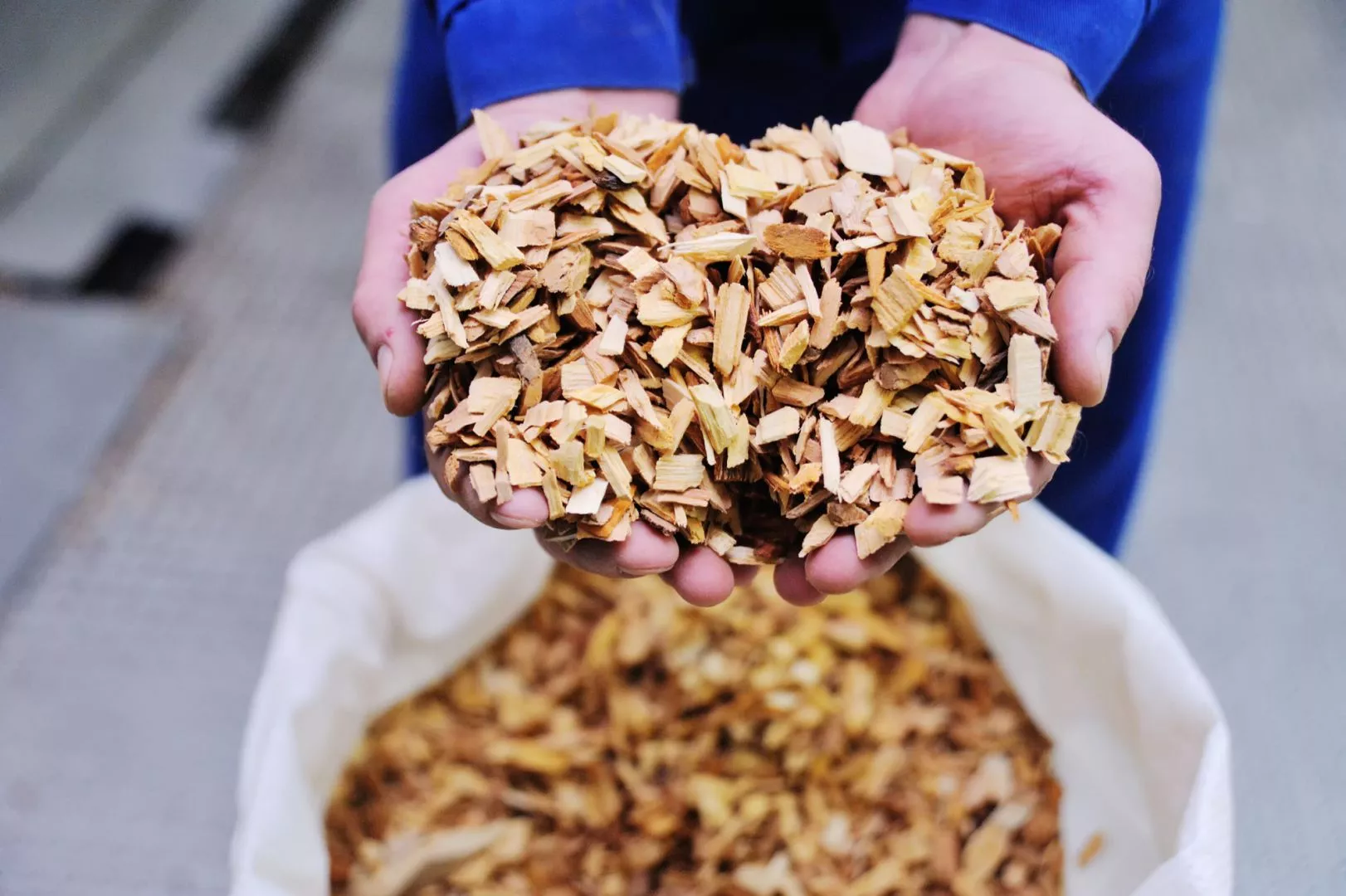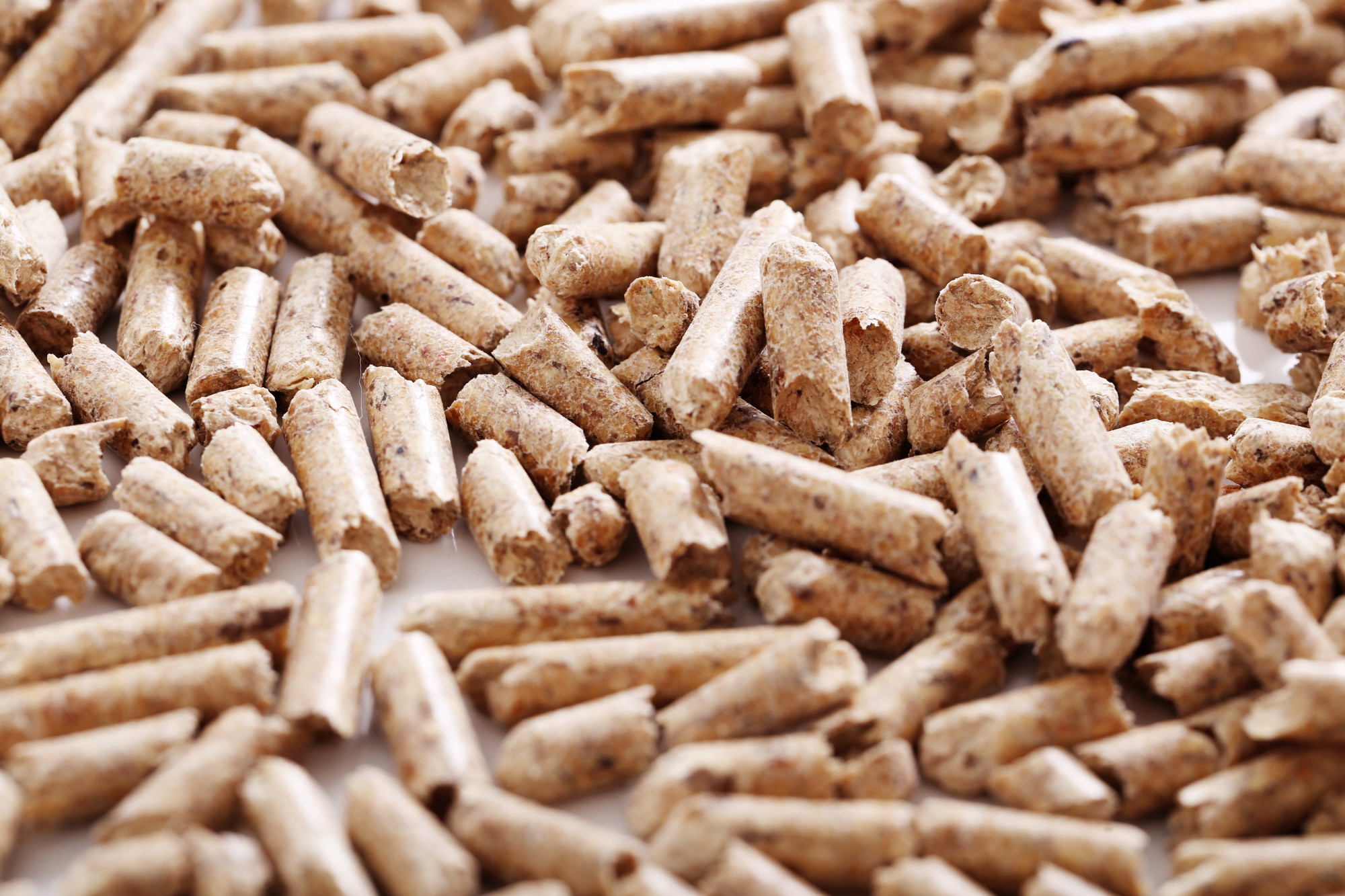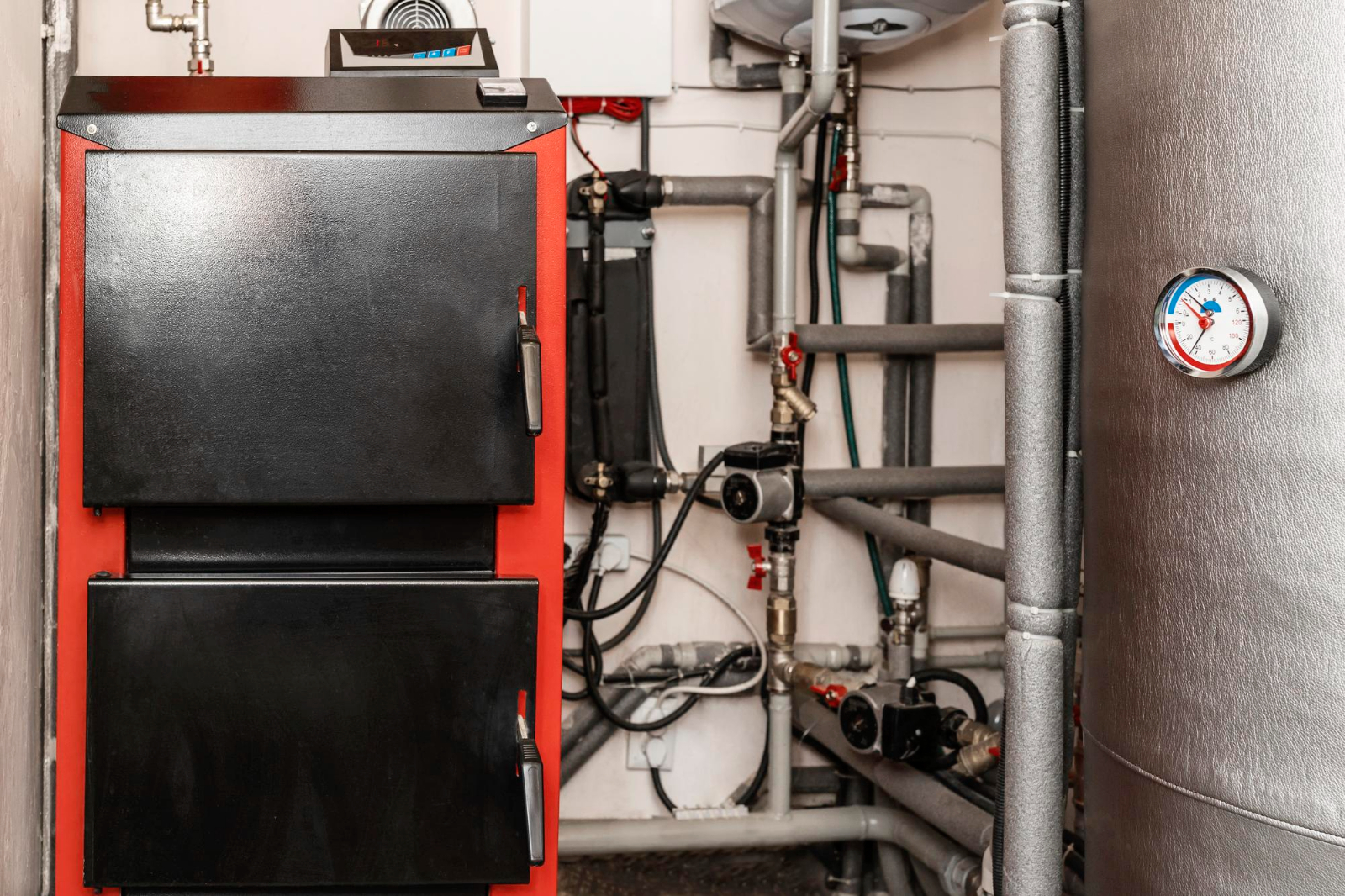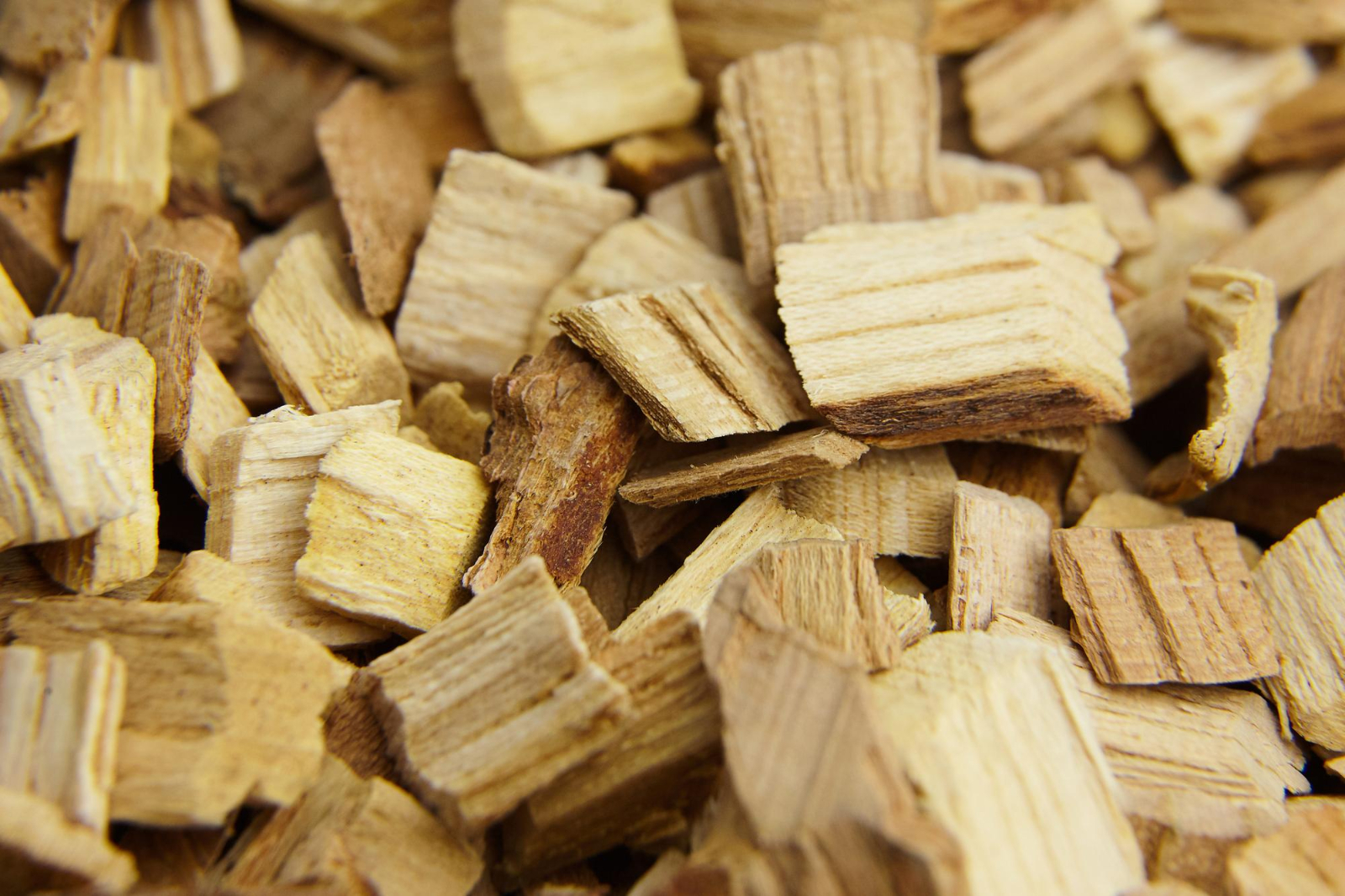Biomass fuel types - which is best? Find out more about your options for biomass fuel boilers. We explore the benefits of each so you can discover the best fuel for you.
What Is Biomass?
Biomass, a renewable energy source, derives from burning organic matter like wood, plants, and organic waste, releasing less carbon dioxide than fossil fuels. It offers an eco-friendly alternative.
Biomass heating systems use wood pellets, chips, or logs for warmth in a single room or to power central heating and hot water boilers.
Wood stoves heat a room and can have back boilers for water heating. Biomass boilers burn logs, pellets, or chips and connect to central heating and hot water systems. A wood-fuelled biomass boiler can save up to £1,100/year compared to old electric heating.
Key Biomass Fuels:
Wood.
Wood chips.
Wood pellets.
Considerations and Benefits:
Properly dried wood ensures efficient combustion and fewer emissions.
Biomass reduces greenhouse gas emissions, contributing to climate change mitigation.
It is a sustainable and renewable energy source.
Embracing biomass heating systems provides both environmental and economic advantages, offering a greener and more cost-effective heating solution.
Biomass harnesses the power of organic materials, providing heat and hot water with a reduced carbon footprint. Utilizing biomass fuels can lead to a sustainable and responsible energy future.
What Are The Types of Biofuel
Biofuels derived from wood offer a prominent and environmentally friendly alternative to traditional fossil fuels. They harness the energy of organic matter, reducing greenhouse gas emissions and contributing to a sustainable energy future.
Within the realm of wood-based biofuels, there are three main types: wood pellets, wood chips, and wood logs. Each type presents unique advantages and considerations, making them suitable for various heating applications.
Wood Pellets
Wood pellets are small, high-density fuel pellets produced from wood by-products such as saw millings and sawdust. Their compact size and low moisture content are notable advantages, allowing for easy storage and efficient transportation.
Due to their uniformity in shape and size, wood pellets provide a smooth and consistent fuel feed, reducing disruptions during combustion. These qualities make them an excellent choice for biomass heating systems.
Advantages
- High density and heat output.
- Low moisture content for easy storage and transportation.
- Automatic feeding capability into biomass boilers through attached hoppers, ensuring a constant and convenient heat supply.
- Uniform shape and size, leading to efficient combustion and low emissions.
Disadvantages
- Relatively higher cost when purchased rather than produced in-house.
- Generally considered suitable for systems up to 200kW due to cost and supply constraints.
Wood Chip
Wood chip serves as a popular biomass fuel, especially for automatic biomass systems and medium to large-sized boilers. The production process involves feeding cordwood or waste wood into specialized wood chipping machines, resulting in wood chips of varying sizes. However, wood chips can be standardized into common sizes such as G30 and G50.
Advantages
- Simplified production process compared to other wood fuels.
- Automatic feeding into biomass boilers, reducing the need for manual handling.
- Potential for high efficiency in biomass boilers.
- Standardization into common sizes for ease of use.
Disadvantages
- Requires more space for storage compared to pellets.
- Potential issues with uniformity if low-quality chipping equipment is used.
- Incorrect sizes or high moisture content can cause fuel feed and combustion inefficiencies.
Wood Logs
Wood logs, being the most readily available type of biomass fuel, offer simplicity and ease of sourcing. They require minimal processing and are easy to transport in bulk, making them an attractive option for some heating applications.
Advantages
- Minimal processing and easy transport.
- Cost-effective if sourced locally or available as waste.
- Abundant and readily accessible.
Disadvantages
- A longer drying period is required before logs can burn efficiently.
- Manual feeding is necessary for batch-fed biomass boilers, which may be less convenient for some users.
- Handling can be cumbersome due to the irregular shape and size of logs.
Wood Chip Biomass Fuel
Wood chip biomass fuel is a sustainable and environmentally friendly option for biomass heating systems. It offers several advantages that enhance the performance of these systems and reduce running and maintenance costs.
One of the key benefits of using wood chip biomass fuel is its clean-burning nature, which results in low ash residue and the absence of clinker formation. This ensures that the biomass heating system operates efficiently and minimizes the need for frequent cleaning and maintenance.
To maintain the quality and effectiveness of wood chip biomass fuel, stringent quality control standards are applied during its sourcing and processing. This ensures consistent sizing and moisture content while reducing the presence of fines, dust, and other debris.
The careful selection and processing of wood chip fuel contribute to efficient combustion and help in lowering emissions.
It is essential to source wood chip biomass fuel from trusted suppliers who adhere to ethical and sustainability standards. Responsible sourcing practices help ensure that the wood chip fuel comes from sustainably managed woodlands.
By supporting such practices, we can minimize the impact on the environment and contribute to the long-term health of our forests.
Wood chip biomass fuel is a viable and eco-friendly solution for biomass heating systems. Its clean-burning properties, low ash residue, and adherence to quality control standards make it an efficient and sustainable energy source. By choosing wood chip biomass fuel, individuals and businesses can play a part in reducing their environmental footprint and promoting a cleaner and greener future.

Wood Chip Biomass Fuel

Eco-friendly Solution
Wood Logs As Biofuel
Wood logs and briquettes, also known as heat logs, are popular types of wood fuel made from compressed dry biomass. While they can be produced from various materials such as sawdust, wood bark, coffee grinds, rice husks, and peat, the majority of products sold in the UK are primarily wood-based.
Suitable for Residential Stoves and Log Boilers: Wood briquettes are well-suited for use in residential stoves and log boilers. Their uniform shape and size make them easy to handle and feed into these heating systems, providing a reliable and consistent source of heat.
Chimney and Flue Friendly: Using wood briquettes as biomass fuel can be advantageous for the chimney and flue system. They tend to produce less ash and fewer emissions compared to traditional logs, reducing the buildup of creosote and promoting better chimney maintenance.
Environmentally Friendly: As a renewable and sustainable energy source, wood briquettes are an environmentally friendly alternative to fossil fuels. They are made from compressed biomass, a natural material, and their combustion results in lower carbon dioxide emissions, contributing to climate change mitigation.
Odourless: One of the notable benefits of using wood briquettes as biomass fuel is their lack of odour during burning. Unlike some other types of fuel, wood briquettes provide a clean and odourless heating experience, making them ideal for indoor use.
Wood logs and briquettes offer valuable advantages as biomass fuel options. Their versatility and availability, especially in wood-based forms, make them a popular choice for residential stoves and log boilers. Beyond the convenience they offer in terms of handling and storage, they also promote environmental sustainability by being both renewable and odourless.

Biomass Wood Pellets
Biomass wood pellets, derived from wood by-products like saw millings and sawdust, serve as a highly efficient and eco-friendly fuel source. These pellets offer several advantages as a clean and sustainable energy option for biomass boilers.
Biomass wood pellets have high energy density and provide significant heat output while maintaining low moisture content, making them easy to store and ensuring efficient combustion.
One of the notable benefits of wood pellets is their automatic feeding capability into biomass boilers through attached hoppers, ensuring a continuous and reliable heat supply without manual loading.
The uniform shape and size of wood pellets minimize the risk of fuel feed disruptions in biomass boilers, ensuring consistent and reliable heat generation.
Wood pellets emit low emissions due to their standardized nature when used in compatible appliances, promoting cleaner and greener heating practices. Despite their high energy content, wood pellets have a small volume relative to their equivalent heat output, making storage and transportation more convenient.
However, it's important to consider that wood pellets may be more expensive when purchased externally instead of being manufactured in-house, impacting overall costs. Additionally, wood pellets are typically recommended for systems up to 200kW due to cost, delivery, and supply constraints, limiting their application for larger setups.
Whether you need wood chips for landscaping, gardening, playgrounds, or biomass fuel, our diverse product offerings cater to all your needs. We are your new trusted destination for top-notch wood chip services in the North West.







